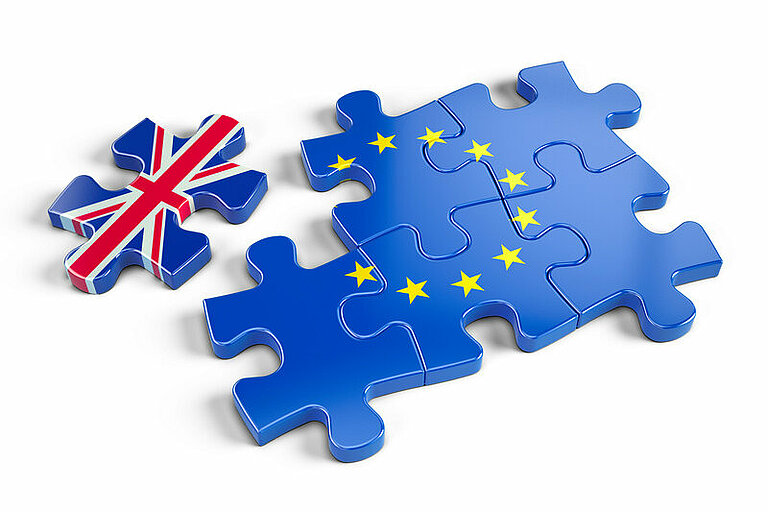Publications
![[Translate to Englisch:] [Translate to Englisch:]](/fileadmin/user_upload/Presse_und_Medien/mediathek/YouTube-Vorschaubild/NOA-Namur-Open-Architecture-Connectivity.jpg)
20.10.2021
The companies were able to cope with the turn of the year 2020/2021 quite well, although the Brexit negotiations were carried out in secret until the end and only ended on Christmas Eve. The main reason for this was that on the British side only customs procedures for dangerous chemical goods and goods subject to excise duty (tobacco, alcohol, fuels, etc.) were initially necessary.

Products of the electrical industry, however, can still be imported into Great Britain unhindered until December 31, 2021 and the relevant documents can be submitted up to 176 days later.
The mandatory labeling with the new UKCA marking (instead of CE) was also suspended until the end of 2021 (meanwhile even end of 2022) - with a few exceptions.
The EU, however, has been requiring all customs formalities for imports from Great Britain since January 1, 2021 and levying customs duties if necessary.
The expected bureaucratic problems are already emerging for British exporters.
On the German side, there were only a few software problems with the export procedures from the EU, although the provisions of the agreement were only announced a few days before their application.
For example, Northern Ireland's special customs treatment was initially complicated because there is no separate ISO country code.
In many software programs auxiliary solutions had to be used, e. g. the Belfast postcode was used temporarily. This prevented unnecessary export customs declarations from being automatically generated for deliveries to Northern Ireland that remain in the EU internal market.
No customs duties are levied on goods originating in the EU and Great Britain.
The imposition of WTO tariffs on these goods was prevented, but nothing more.
The usual WTO duties are now due on goods from third countries and goods with insufficient further processing from third country parts.
It is therefore a purely bilateral agreement between the EU and Great Britain, so that goods from all other countries can no longer be imported and exported preferentially.
This applies, for example, to almost all other European and Mediterranean countries that are part of the pan-European zone of origin.
The so-called cumulation of origin with this economic area, which is much larger than the 27 EU states, was lost for Great Britain without replacement.
The free trade agreement - taken on its own - turned out to be quite good and could serve as a blueprint for how the EU deals with other countries.
In the case of Britain, however, even the best free trade agreement is of no consolation, as the customs union, the single market and pan-European accumulation have all been abandoned.